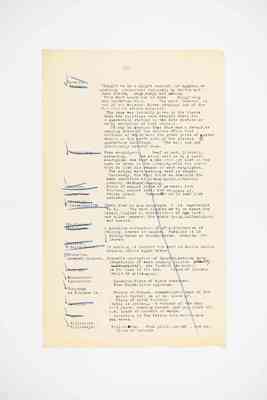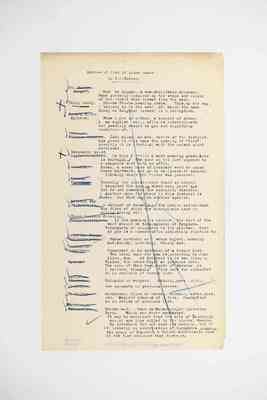Pages
131
[Mutdapilly] or Mudheripilly ( there is no letter in the English language which represents exactly the sound which I have represented by the digraph dh in the name). Mudheri may be translated broadly as unpleasantly sticky and dirty, and pilly, a gully. I am of opinion that the name relates to a gully in the vicinity of [Mutdapilly] which, in wet weather may be so described. It runs through a rich loose alluvial soil and is a tributary of [Warril Creek]. Locally it is known, significantly, as the [Black Gully]. Analogous to this name is [Mudgeeraba] (Mudheriba) a place near [Nerang] which is swampy and which I found when crossing it in wet weather some forty years ago to be decidedly"mudheri", This name, [John Allen], Abo., in his vocabulary,translates as, place of infant's excrement, but curiously, when in conversation with an aboriginal collaborater of his ,I found the cause of the error.
[Jebropilly], I do not know,nor do I know its geographical position, the first part of the name sounds something like a word meaning grasshopper but there is no certainty of this.
[Boona], Boonah,boonau,(slight terminal differences in Yagarabul, Kabi and Yugumbir respectively,means bloodwood tree., the Eucalyptus corymbosa. A coruption of this word exists in the name of a place in the [Logan] district in the place name [Benoble]. This should be Bunauba, place of bloodwood trees, or as the blacks called it, Bunauba garara (place of blood-wood trees tall).
[Purga], Meaning unknown to me. This does not sound like an aboriginal word.
[Munbilla]. Meaning unknown to me. billa may be a corrupted spelling of pilly, meaning a gully. In itself it does not mean water for in this locality aboriginals' word for water is tabbil or, alternatively, koong. The word may relate to a long narrow lagoon near [Munbilla] on what was at one time part of [Fassifern cattle station], and which was,I believe,at one time used as a sheep wash pool,but there is no certainty of this.
[Woogaroo] . A map published in 1848 shows a creek in the vicinity, a tributary of the [Brisbane River],named Woogero.
(There is)
132
[Nindooimbah]. Should be Ninduinba (Nin-duin-ba) meaning place of ashes or soot. Ninduin , ashes or soot,and ba, place. Or,place of a burned out fire.
[Pimpama]. Place of soldier birds. Bim-bim-ba. bim-bim, soldier birds. Letter b or p used optionally.
[Tabragalba].Said to be named from the fact that a huge petrified nulla was found there. (I have heard of no one who has actually seen this nulla). Another story is that some old nullas that no one claimed were found there. This is the most likely story, and in that case the name would be Dhaberi-dalba (T or dh optional) meaning dhaberi, nulla; and dalba, thrown away or scattered.
[Tallabudgera]. [Allen]'s definition, place of urinating is, in my opinion, doubtful. I,however, cannot comment.
[Tamborine]. [Allen]'s definition, yam in a cliff, has evidentally been deduced from the words tam, meaning wild yam, and birin, a cliff._ The blacks did not usually give a name to a mountain range but to some outstanding features of it. The name is probably a bush worker's corruption of the word tarumban, which was a name applied to some part of the mountain where wild limes were plentiful. Tarum is the name of the native lime tree and its fruit; ban is a variant of ba, place of. I may say that limes grow plentifully on some part of the mountain. and that I have, during the last season,, through a friend in the district, received three different species of this fruit.
[Undulla]. Should be nandalla, meaning the silverleafed ironbark tree.
[Whites Hill] [Bulimba]. Place of magpie larks,(commonly called peewees) From bulum, magpie lark, and ba, place of.
[Coochin]. should be Coochin Coochin,originally a cattle station.
Coochin,in all S.E.Queensland languages, as an adjective means red, and,as a substantive, means a red pigment or clay. There is a hill on what was once part of the station the material of which is red. Long ago I was told that the station was named from this hill.
The owners, [Bell] family,maintain that the words mean "Black swan". The name of the black swan, however is muru-kutchi (beak red) or, in English, red-beak. The [Bell] family are disinclined to admit this,partly,I fancy,owing to a house flag bearing two black swans having been adopted by them.
[Warrill]. Said to mean a creek or river, but I strongly suspect it to be a corruption a corruption of the English word water in the same that the blacks used to use the word warra.
[FJWatson]
133
The name Canning-gurri-gurri relating to part of the old [Peak Mountain Station] should,I think, be Kunungai Garara meaning "a long flat", from kunungai, a flat, and garara, long. With regard to this name, I once didcussdiscussed the meaning of the place name Canungera with an old Logan aboriginal and, although he was not positive on the matter he admitted that it Canungera was probably derived from these word and referred to a flat in the vicinity.
I regret that I cannot give the origin of the place name [Cannon Hill] and,as I am unaquainted with the locality,I cannot any native word or words representative of any feature of it. I think it would be difficult for any one to find native words suggestive of the meat industry, as of course, they the natives,had nothing suggestive of it in their method of living.
I am, as time permits, putting a number of place names and their meanings into form and hope to send you a bunch in good time before your next broadcast.
Yours faithfully, [FJWatson] ([F.J.Watson]).
P.S./
The only abo. word I can think of that has reference to anything in connection with meat is a S.I'land word "Igom", meaning flesh. "Igomba" (Ig-om-bah") would mean "place of flesh". This, however, would probably be to much in sound like [Pinkenba] on the opposite side of the River. The authority for the word Igom and its meaning is an educated native, [John Allen], now deceased.
[FJWatson]
134
(2)
[Dunwhich]. [Goompi]. Thought to be a slight variant of ngumbin or ngumbing ,pronounced variously by whites and some blacks, umpy ,humpy and umbing.
This word means hut or huts. Humpy-bong was named from this. The word, however, is not of the [Brisbane River] language but of the Yugumbir as others herewith.
The name was probably given by the blacks when the buildings were erected there for a quarantive station in the late sixties or early seventies of last century.
It may be mention that this was a favourite camping place of the natives at one time , evidence of which were the great piles of oyster shells on the north side of the present quarantine buildings. The soil has now practically covered them.
[Wongalpong] From wonglapoon. Deaf or mad. Literally, unhearing. the story told me by a local aboriginal was that a man once got lost in the bush or scrub in the locality,with the result that he lost his reason or went wongalpoon.
The actual word meaning deaf is wongal.
Curiously, the Kabi tribe so describe the same condition as pinang-gulum, literally meaning without hearing.
[Pimpama]. Place of magpie larks or peewees; from Bim-bim, magpie lark, and ba,place of.
[Mudgeraba] Sitcky place. commented on in last list reviewed.
[Burleigh]. [Javreenbilla]. (Note that in abo. languages v is equivalent to b). The word looks to me to be meant for Jaberi,(nulla) n, abreviation of nga (and), and bilar (spear), the whole being,nullas (clubs) and spears.
[Woodlands]. [Waroojra]. A probable corruption of of a derivative of worung, leaves or boughs. Possible it is worung-darum or worun-jarum, emaning, dry leaves.
[Gilston]. [Booie Booie]. If meaning is correct the word is Boolbo boolbo meaning native apple trees.
[Etchells]. [Moombee Moombee]. Probable corruction of Ngumbin,meaning huts. (repetition of word usually implies pluralitymultiplicity). See [Dunwich] ([Goompee]).
[Bilinga]. Is the name of the bat. Place of parrots would be pilin-a-ba.
[Kinnumboon]. [Kunnumboon]. Kunumbun Place of black opossums. From Kunum,black oppossum.
[Wahgumpa] on [Pimpama Is.] Wargum or wahgum, onomatopoeic name of the scrub turkey; pa or ba, place of. Place of scrub turkeys.
[Yawulpah] Yawul is probably a variant of the Kabi word yauwa, meaning hornet. and pa, place of; i.e. place of hornets or wasps.
[Tugun]. According to [Tom Petrie] this word means sea waves.
[Billinooba]. [Pillinnujel]. Pillin-u-ba. From pillin parrot , and ba. Place of parrots.
135
Review of a list of place names by F.J.Watson
St. Helena. Moogooh May be niugam, a sea shell (Melo diadema). Name probably inspired by the shape and colour of the island when viewed from the west. Tabby Tabby. Dhu-be Dhu-be, meaning crabs. This, by the way, I believe to be the word of which the name Doboy or Doughboy (creek) is a corruption.
Nerang River. Ejuncum. From i-jun or i-dhun, a species of grass; (i as english ee).; affix is indeterminate but possibly should be gun and signifying condition of.
Coomera. Kummera-kummera. John Allen, an abo. native of the district, has given this name the meaming of "fern"; possibly it is identical with the poison plant mentioned.
Deepwater Point. Karrawumbahdeen. In this district a word meaning grass tree is karragul. The name on the list appears to a compound word with an affix.
Canaipa Konai, a spear made of ironbark wood or other heavy hardwood, and pa or ba, (place of spears), Probably where the timber was procured.
Nerang. Ngearung. Probably the shovel-nosed shark as stated. I recorded the name as shark many years ago but do not remember the authority therefor. Another name for shark in this district is bowai, but that may be for another species.
Redland Bay Talwurrupin. A variant of talwalpin, the native cotton-bush the fibre of which the aboriginals used in making string etc.
Upper Coomera Crossing. Tchoongurragoon. If the meaning is correct, the root of the word should be tchoongnuroo or jungnuru. Tchungarra or chungarra is the pelican. Goon or gun is a common affix indicating relation to.
Alberton Ferry Wobbomerijee. Wobum mudtheri or wobum mujeri, meaning mud, sticky; literally, Sticky mud.
Tamborine. Tohambreen. Commented on in a revision of a former list. The local name for yam is, according to John Allen, dum. At Brisbane it is tam (long a).
Wynnum. Winnam, the bread-fruit or pandanus tree. The name of this tree, south of Brisbane, is I believe, Tiungul. This name was commented on in revision of former list.
Ormiston. Wekkahn. Wahngahn or wargarn. Meanig, crow (bird).
Jinboomba. See comments in previous review.
Ninduimba Ninduinba. Place of ashes. Ninduin, ashed, soot, etc. Expired remains of a fire. Commented on in review of previous list.
Beenleigh. Webummarjoo. Sticky mud. Same as wobummerijee (Alberton Ferry. Which see, above mentioned. It may be mentioned that the site of Beenleigh was, at one time called by the blacks, Guanba. My informant did not know the meaning, but it is probably an abbreviation of Guguganba, meaning, the place of Gugugan, a tribal subdivision that at one time occupied that district.




